Gutenberg has turned the WordPress world upside down. After the release of WordPress 5, many users were worried. Companies and enterprise users wondered whether they could continue to use WordPress as a CMS. We introduce the features of the editor and all further development phases of Gutenberg and show that WordPress with Gutenberg is better qualified for enterprise WordPress websites than ever before.
Gutenberg is our default, the standard we can rely on. Because it will certainly persist for many years to come. This is not so clear with other solutions in the page building sector.
Robert Windisch, CIO of Inpsyde
What exactly is Gutenberg?
Gutenberg – named after the inventor of letterpress printing, Johannes Gutenberg – will take the WordPress User Experience to a whole new level. The goal is to make WordPress as a CMS more powerful and easier to use than ever before. Intuitive page building, multilingualism and working together simultaneously on content is only part of what is to come. Because Gutenberg is not only a content editor but a much more extensive project.
The block editor was the first big step of Gutenberg. According to the modular construction system, it provides different blocks for content creation, such as blocks for headings, text paragraphs, or videos. These blocks are easy to move and to customize.
The editor is only the first of 4 phases of Gutenberg’s development. These phases have already been defined as a so-called roadmap for Gutenberg and were presented at the WordCamp US 2018 by WordPress co-founder Matt Mullenweg. The development is currently in Phase 2 which is about extending Gutenberg’s functions beyond the editor. Users will be able to manage their entire website with Gutenberg. At the moment, the main focus is on menus and widgets. The following graphic provides an overview of the 4 phases of Gutenberg:
The 4 Phases of Gutenberg
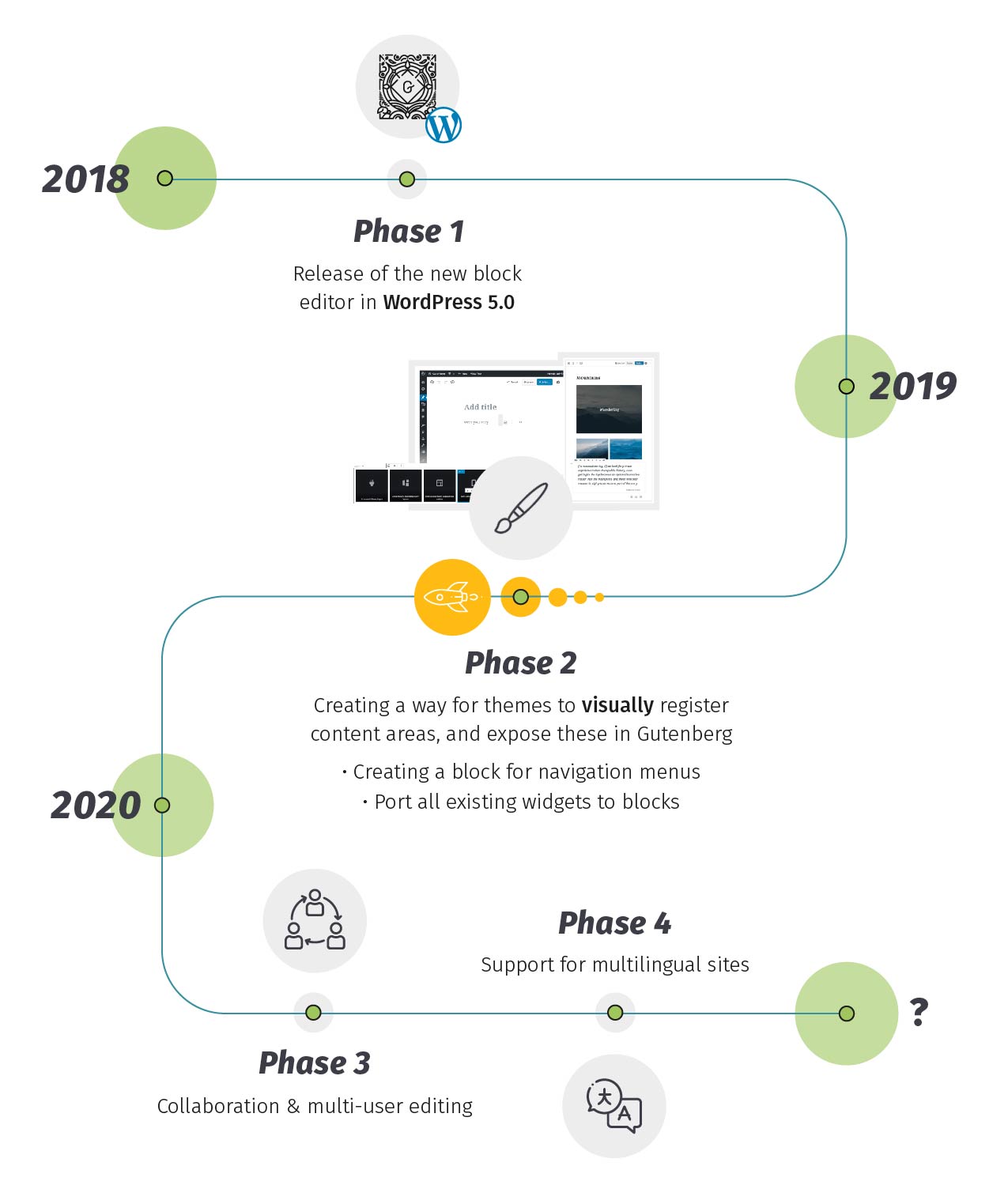
Gutenberg’s role in the development of enterprise solutions
Many WordPress website operators ask themselves whether WordPress with Gutenberg also makes sense as an enterprise-level CMS.
Gutenberg: The start into the future
Gutenberg was announced at the WordCamp Europe in June 2018. The release was planned for August or September but was finally postponed to December. Because Gutenberg has brought many changes. It was something completely new. The development of Gutenberg and its Editor as a first step was therefore a long and difficult process.
Since the announcement of Gutenberg, there has been no more important topic in the WordPress community. There was a lot of criticism. But also, many positive voices that see Gutenberg as a new opportunity for an assured future of WordPress as the most popular content management system in the world.
Gutenberg is like gravity. It’s just there and you can’t escape it. And you work with it as you work with gravity.
Robert Windisch, CIO of Inpsyde
Matt Mullenweg gave the last Gutenberg update on phase 2 at the WordCamp Europe 2019 in Berlin. Our Recap of the event and the most important points of the Gutenberg Summer Update can be found here.

WordPress is a good choice as CMS for corporate websites
As an open-source project, WordPress and Gutenberg are co-developed by the entire WordPress developer community, tested in practice and continuously improved. The development speed is therefore enormous. This is why WordPress is ahead of other CMS.
“For us as a WordPress agency for enterprise customers, this means that we have to keep it rolling. We have to react fast to new functions. For example, we had functions that we built for customers, and a short time later there was a similar function as a block in the core. But that’s normal and we think it’s great.“
“We now have the advantage that we only have to build on the new developments in Gutenberg. We don’t have to build our own page builder anymore. Or rely on a page builder from another company whose solution the customer might have to buy first. We now use the editor which is actively included in the WordPress ecosystem and which the entire community works on and with.“
— Robert Windisch, CIO of Inpsyde
Due to the high development speed and continuous improvement of WordPress Gutenberg, the CMS is considered to be very future-proof. Furthermore, the editor is included free of charge in the WordPress Core, there is no need for paid page builders. At the same time, the range of functions is constantly expanding.
What Gutenberg can accomplish for websites at the enterprise level
One of the greatest strengths of WordPress is its high configurability. With Gutenberg, it will now become easier and easier to make quick and clear adjustments. The practical and intuitive text editor is just the beginning.
For enterprise websites, Gutenberg offers some clear advantages over other CMS or page builders:
No expensive page builders, no vendor lock-in
Gutenberg is included in the WordPress core and can therefore be used free of charge and without contractual obligations. Gutenberg means more freedom for enterprise companies.
User-friendly handling
The new Block Editor makes creating rich media sites easier than ever. Individual blocks can be adapted very quickly and the handy drag-and-drop function makes it easy to create and test layouts.
Unlimited possibilities
WordPress is famous for its countless themes and plugins. Thanks to clear code and the plugin installation system, the CMS has always offered every possibility of customization. The new block editor forms the ideal basis for user-defined content. With Gutenberg, you can create individual and unique websites.
Collaboration
Phase 3 of Gutenberg is aimed at improving collaboration in content work. Similar to Google Docs, it will be possible for several authors to work on the same content at the same time. This feature will be particularly valuable for enterprise content with two or more responsible persons working on it.
Multilingualism
One of the most interesting features of Gutenberg is certainly the planned integration of multilingualism in Phase 4. Online shop systems and enterprise websites that want to serve several countries or languages will thus be offered a convenient and performance-friendly option for multilingual websites.
Future-proof architecture
More than a third of the websites worldwide use WordPress and for good reason. In terms of security, performance and, above all, usability, WordPress is a pioneer in the CMS field. Gutenberg is the future and we can expect many more practical features that guarantee a comprehensive and user-oriented website and content design.
These pages already trust in WordPress
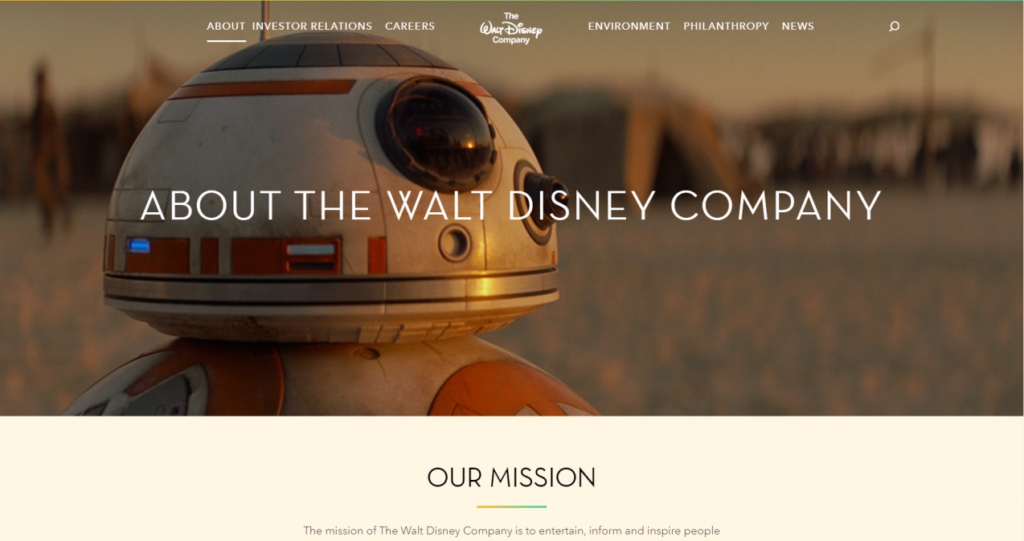
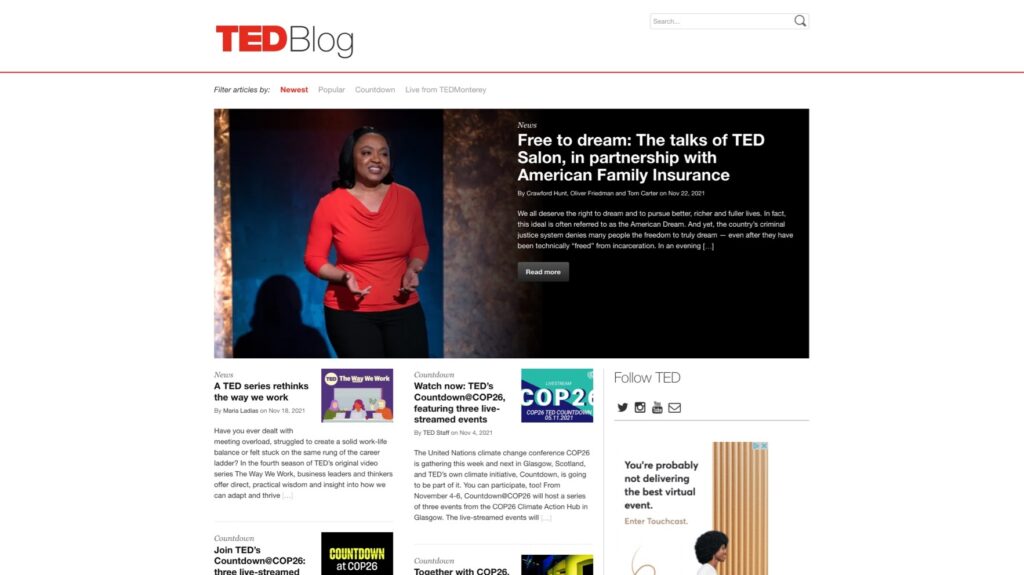
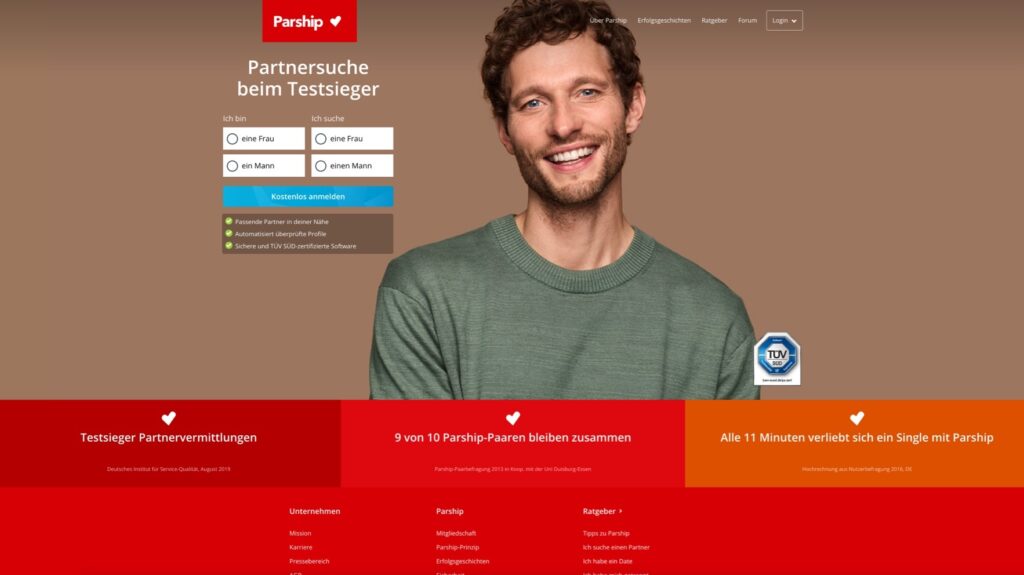
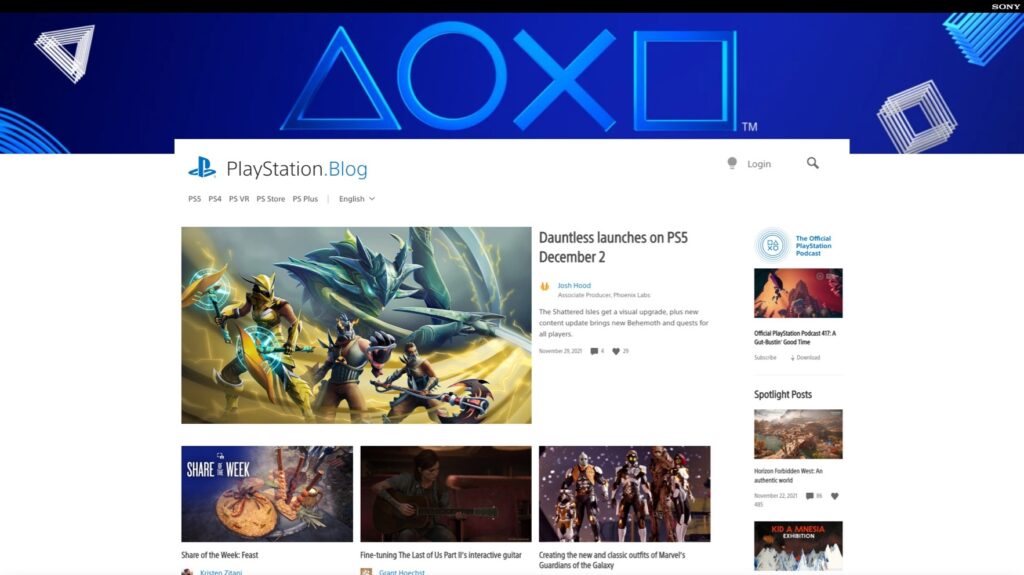
Conclusion: WordPress as Enterprise CMS pays off
WordPress offers many possibilities and advantages, especially for the web presence of large companies. High scalability and user-oriented interfaces are only the beginning. The new Gutenberg editor makes the creation of multimedia websites even easier and more intuitive. In the long run, multilingualism and collaborative features such as working together on content will make the CMS even better.

Failed to submit:
one or more fields are invalid.